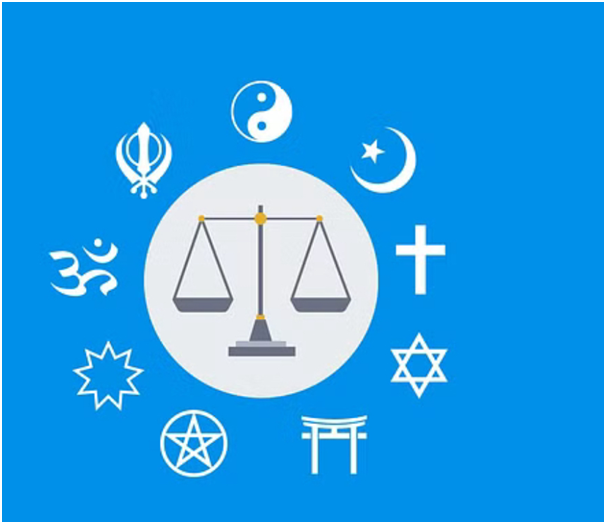Uniform Civil Code
Context: The Supreme Court recently held that a State government’s authority under the Constitution to form a committee to examine the implementation of the Uniform Civil Code (UCC) cannot be challenged.
Uniform Civil Code
- Uniform Civil Code (UCC) can be defined as formulation of one law for India, which would be applicable to all religious communities in matters such as marriage, inheritance, divorce and adoption.
- The code comes under Article 44 of the Constitution, which states that the state shall endeavour to secure a Uniform Civil Code for the citizens throughout the territory of India.
Difference between civil laws and criminal laws
- While the criminal laws in India are uniform and applicable equally on all, no matter what their religious beliefs are, the civil laws are influenced by faith.
What are personal laws?
- Laws that apply to a certain group of people based on their religion and belief after due consideration of customs and religious texts.
- The personal laws of Muslims and Hindus find their source and authority in their religious ancient texts.
Status of Personal law in India
- Personal law subjects like marriage, divorce, and inheritance come under the concurrent list.
- The Hindu personal laws that apply also to the Sikhs, Jains, and Buddhists have been codified by the Parliament in 1956(Hindu Succession Act, 1956).
- On the other hand, Muslim personal laws are still primarily unmodified and traditional in their content and approach. The Shariat Law of 1937 mandates the personal matters of all Indian Muslims in India.
- It clearly states that in matters of personal disputes, the state shall not interfere, and a religious authority would pass a declaration based on his interpretations of the Quran and the Hadith.
- Jews and Christans are also governed by different personal laws.
What will Uniform Civil Code do?
- The UCC aims to provide protection to vulnerable sections as envisaged by Ambedkar including women and religious minorities, while also promoting nationalistic fervour through unity.
- The code will work to simplify laws that are segregated at present on the basis of religious beliefs like the Hindu code bill, Shariat law, and others.
- The code will simplify the complex laws around marriage ceremonies, succession, inheritance, adoptions making them one for all.
- The same civil law will then be applicable to all citizens irrespective of their faith.
Supreme Court on UCC
- The Supreme Court in various judgments has called for the implementation of the UCC.
- In Ahmed Khan vs Shah Bano Begum judgement of 1985, 1995 Sarla Mudgal judgement as well as in the Paulo Coutinho vs Maria Luiza Valentina Pereira case (2019), the top court called for the implementation of the UCC.
What has the Law Commission said?
- In 2018, the Law Commission submitted a 185-page consultation paper on the reform of family law. While terming UCC neither necessary nor desirable at this stage.
Conclusion
- B.R. Ambedkar believed that while desirable, the UCC should remain “purely voluntary” in the initial stages.
- He stated that the Article “merely” proposed that the state shall endeavour to secure a UCC, which means it would not impose it on all citizens.
| Practice Question
1. What is Uniform Civil Code? Critically evaluate its need in India?
|





